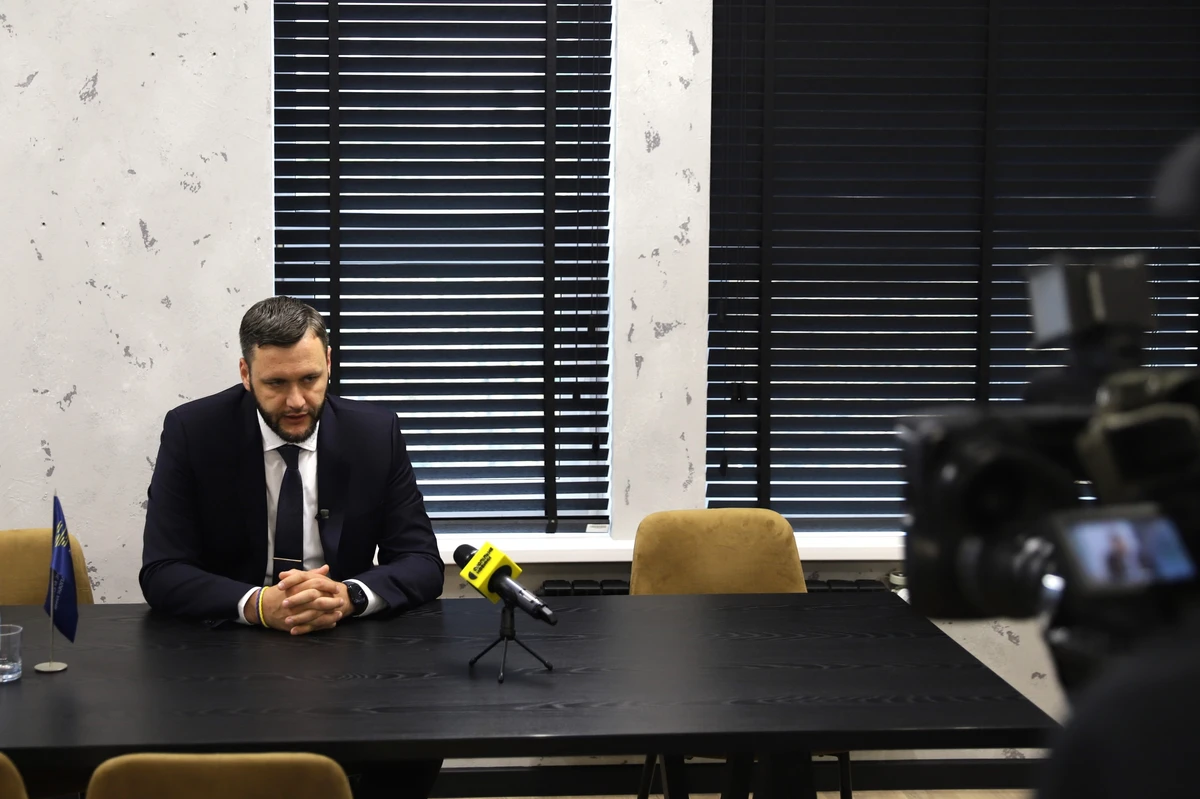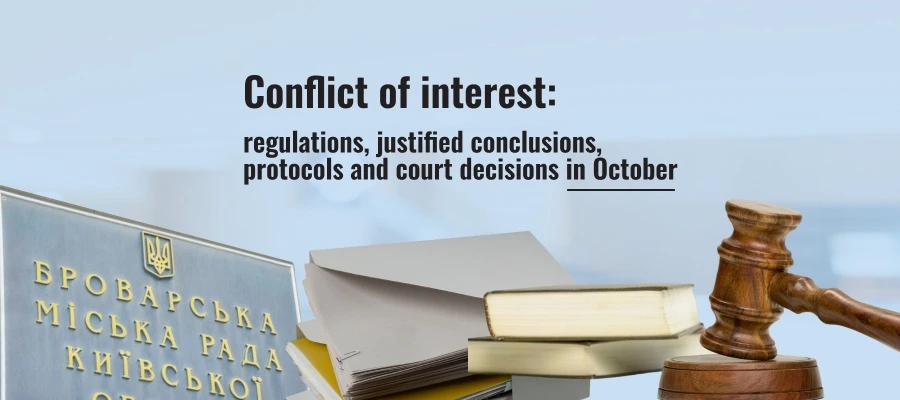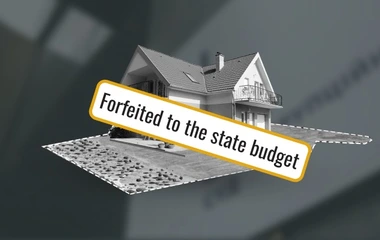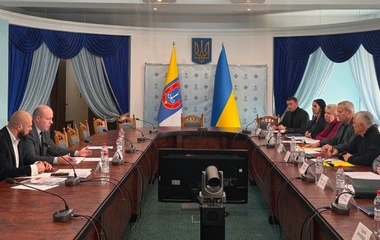The National Agency on Corruption Prevention (NACP) has made its first payment to a corruption whistleblower. The payment was made in accordance with the decision of the Appeals Chamber of the High Anti-Corruption Court of November 9, 2023 in case No. 991/2197/22.
The whistleblower who received the reward is a current serviceman who served as a Director of the Internal Audit Department of the Ministry of Defense in 2020-2021. In 2021, he filed a statement with the National Anti-Corruption Bureau of Ukraine (NABU), in which he reported that he had been offered an undue benefit of UAH 24 million for acting in the interests of a certain LLC. The matter concerned the engagement of specialists to conduct an unscheduled internal audit of the execution of a government contract. The audit team was to issue a positive report on the results of the audit regarding the completeness, quality, and compliance of the work performed with the terms of the contract. This would have allowed the company to receive full payment of more than UAH 400 million for the arrangement of the special facility and to apply for future contracts with the Ministry of Defense (part 3 of Article 369 of the Criminal Code of Ukraine).

The NABU registered a criminal proceeding over this fact under Part 3 of Article 369 of the Criminal Code of Ukraine. The Specialized Anti-Corruption Prosecutor's Office (SAPO) provided procedural guidance and support to the prosecution in court. On March 24, 2023, the High Anti-Corruption Court (HACC) delivered a verdict in the case, sentencing the defendant, a former deputy head of a department of the Ministry of Defense, to 4.5 years in prison. At the same time, the court refused to pay the whistleblower a reward, explaining that he had officially reported the crime within the scope of his official duties and was therefore not entitled to a reward. The whistleblower appealed this decision and at the end of 2023, the HACC Appeals Chamber upheld his appeal and awarded the payment.
According to Art. 53-7 of the Law of Ukraine “On Prevention of Corruption”, a whistleblower may receive 10% of the monetary value of the subject matter of a corruption crime or the amount of damage caused to the state by the crime after a court conviction. However, the amount of the reward cannot exceed three thousand minimum wages established at the time of the crime. The possibility of rewarding corruption whistleblowers was introduced in 2019. So far, the courts have made two positive decisions on payments, but due to the lack of regulated payment procedures, actual enforcement of court decisions has been impossible for a long time.
“NACP adhered to a principled position in this matter, as the lack of a proper legal procedure for such payment should not affect the possibility of exercising the whistleblower's right guaranteed by the Law. That is why NACP, together with the Cabinet of Ministers of Ukraine, the State Treasury Service, the Ministry of Finance and the Ministry of Economy of Ukraine, actively worked in this direction. Now we have a relevant decision and the first remuneration has been paid. This is a fundamental event for the further development of the whistleblowing institution in Ukraine and the formation of a sustainable whistleblowing culture. The next case is next in line,” said NACP Head Viktor Pavlushchyk.

He explained that the first payment in the history of the Ukrainian whistleblowing institution was made possible by changing the procedure for using funds provided for in the state budget for the implementation of anti-corruption strategies, emphasizing that the issue of regulating further payments of remuneration to whistleblowers is a priority for the NACP.
As previously reported by NACP, on October 2, 2023, the HACC upheld the first instance decision to pay a reward to a whistleblower in another case.
You can read more about the current development of the whistleblowing institution in Ukraine, the results of the first year of the Whistleblower Reporting Portal and what further legislative changes are needed here. You can read more about the need to regulate the status of a whistleblower in criminal proceedings here.
The nationwide survey “State of Corruption in Ukraine 2023: Perceptions, Experiences, Attitudes” demonstrated an increase in citizens' willingness to engage in whistleblowing behavior. The overall level of public approval of citizens filing corruption complaints with the authorized bodies increased from 71% in 2021 to 81% in 2023.
The percentage of citizens who declare their readiness to engage in organized anti-corruption activities has increased significantly, but most often respondents are ready to engage in passive forms of anti-corruption activities: reporting corruption cases in the media and social networks (31% in 2023 compared to 22% in 2021) and initiating and signing electronic petitions (27% in 2023 compared to 23% in 2021).
Ukraine is not the first country to introduce whistleblower rewards. The practice of paying rewards exists, for example, in the United States, Lithuania, Montenegro, and South Korea, but the legal requirements for exercising this right and the conditions for paying rewards differ. In encouraging whistleblowers, Ukraine follows a path that has proven effective in other countries. For example, the US Defamation Act stipulates that whistleblowers may receive a reward of 15-25% of any funds recovered and fines.
To have the status of a whistleblower, a person must meet the criteria of a whistleblower. The notification must be made by an individual (citizen of Ukraine, foreigner, stateless person) who has a belief that the information is reliable. The information provided in the notification must contain factual data confirming the possible commission by another person of a corruption or corruption-related offense or other verifiable violations of the Law. The information reported by the person became known to him/her in connection with his/her labor, professional, economic, social, scientific activities, service or training, or his/her participation in the procedures provided for by law that are mandatory for the commencement of such activities, service or training. In the absence of at least one of the above conditions, a person cannot be considered a whistleblower.
Similar requirements for the identity of a whistleblower are provided, for example, in the legislation of the United Kingdom - there, whistleblowers are employees or former employees of the relevant enterprise who have revealed an offense in the course of their employment, which increases the possibility of confirming the information with evidence (documentation, circumstances of the offense, etc).











